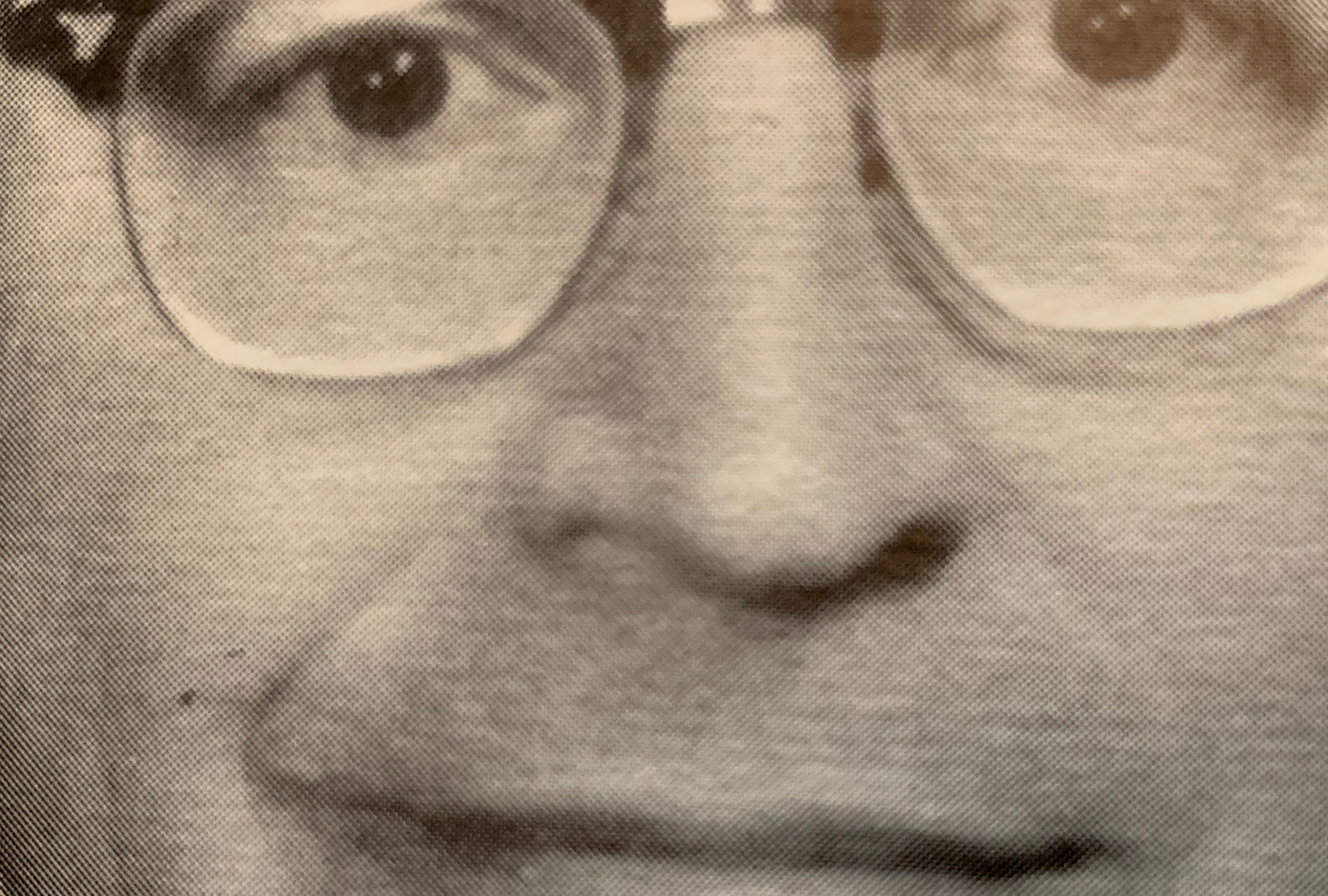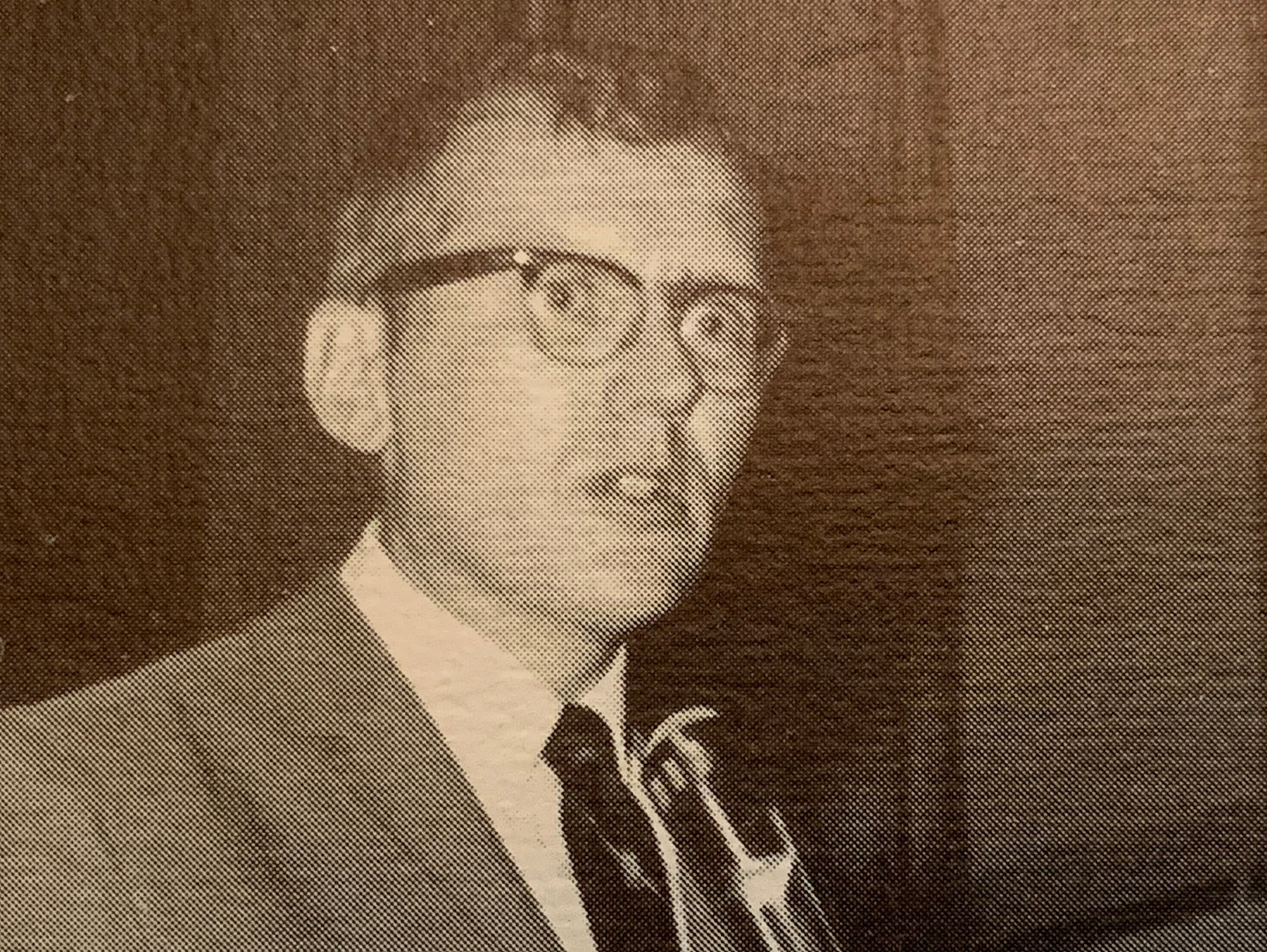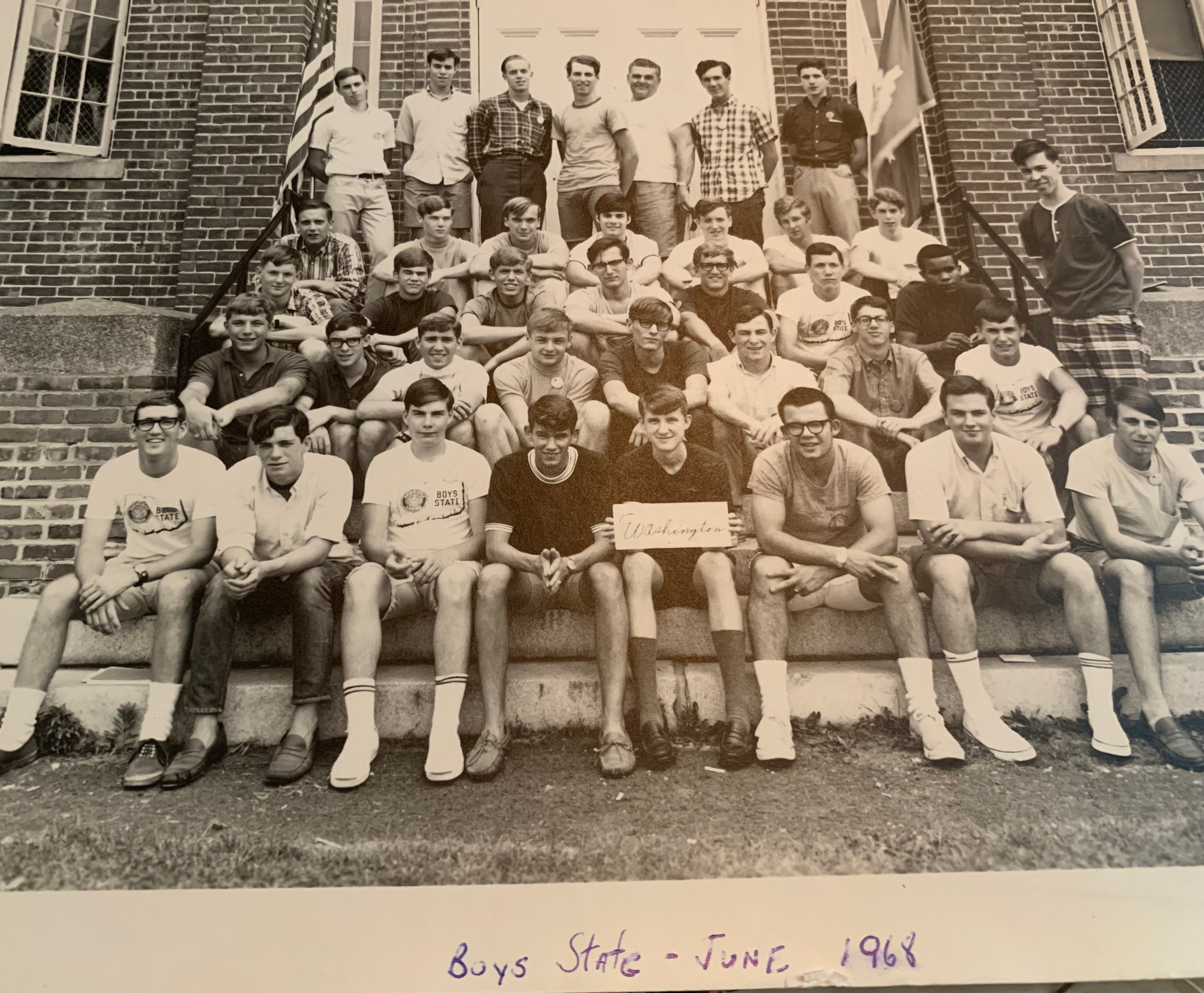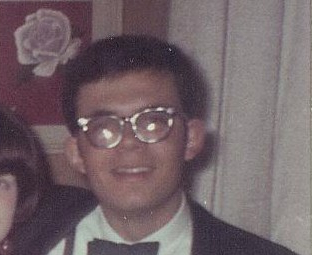The relationship crisis with Bethani was resolved and the junior prom was behind us. I was feeling good. It was spring. It was baseball season. Then 3rd quarter report cards came out. Bethani, of course, got all As. I got three Cs, a D and a B in gym.
Mom and Doom weren’t happy with me but they were just a few months removed from Page’s death. And they were tired of fighting with me for almost my entire school career to get my classroom performance to match my aptitude test performance. I was on my own in my final push toward college.
That week, I got the one and only invitation to my guidance counselor’s office. I sat down and Mr. Lincoln, who was retiring that year didn’t say a word. I knew the yearbook was being dedicated to him. I figured he must have helped the kids on the yearbook staff who were headed to Harvard, Duke and UCONN. But I had never spoken to him or he to me.

Several minutes went by while he looked at my transcripts, then at me, then at notes teachers had written about me and then at my Iowa Basic Skills Test scores. Then he’d look at me again, then back to the papers and this went long enough that it reminded me of sitting in the police station with Page. Time was standing still.
Finally, he shook his head. “I don’t get it,” he said. “You should be doing so much better.”
Then he picked up a pile of papers and waved them at me. Notes from my teachers. “And your teachers say you should and could be doing much better.” His voice was rising. He expressed the frustration my teachers and the school staff had for me for about 10 minutes. But to me it seemed like a fake outrage, as if he’d been told to yell at me. So I just sat there and took it and nodded appropriately.
But as he was wrapping up, Mr. Lincoln tried to hit me with a sucker punch. He asked about my future plans and I told him college.
He leaned back and looked down his nose at me.
“With your track record and the way you’re going, “ he sniffed, “you’d have trouble getting into a community college. Luckily for you,” he paused, “they don’t have any admission standards.”
At the time, Mr. Lincoln’s intended insult didn’t have the effect he’d hoped for. I left his office thinking, “Cool! I don’t have to do anything more than I’m doing and there’s still a college that will take me.”
So rather than throwing my energy into my studies, I threw them into school politics. That, to me, was more interesting and more fun than Algebra II.
It was March and school elections were coming up, elections that would set the tone for our senior year. Two guys in our social circle – John Earl and Ernie Sternberg – were running for the meaningless position of student council vice president. Oh, sure it would look good on their college applications, but it really didn’t mean anything for the rest of us.
Of the guys running for president, one was a class brain – so obviously, he wasn’t one of ours – and the other was a student all the teachers liked. So, again, not one of ours.
One night, several of us we were sitting in the library and, rather than doing homework, were grumbling about how one friend – John – was going to bump the other friend – Ernie – out of a position that didn’t matter. As we complained, someone groused that one of our two guys should be running for president. And a few minutes later, someone said: Why not have one of them drop out of the VP race and run for president as a write-in candidate?
50 years later, we still argue about whose idea it was. But we have always agreed that it was a great idea.
Ernie was too solid, too honorable and a great guy who wouldn’t want to upset any of the people already in the race for president. John, on the other hand, while a nice guy, had a natural streak of cutthroat, political skill within him.
So we went to John’s house. It was a school night and he was already in bed, but we managed to get by his mother, convincing her that we had something really important to discuss. We ran up the stairs, burst into his bedroom and flipped on the stark, white overhead light. We fanned out around John’s bed and began hammering him with our idea. John didn’t say anything – couldn’t really – as he tried to blink himself awake.
But John only put up about an hour’s worth of resistance.
Maybe it was because he was still groggy with sleep or maybe he actually saw the chance to be president, or maybe it was that one of the senior heavyweight wrestlers whom he respected was sitting on his chest as we made our case.
A few days later, there was an all-school assembly in which the candidates for each office got five minutes to tell their classmates why they deserved to be elected. The entire student body and all the faculty squeezed into the old auditorium and sat on metal folding chairs as the candidates for treasurer, secretary, vice president and finally president made their speeches as clever as they possibly could.
Still, it was hard to distinguish any of these speeches from another, even when the speaker was a friend. They all promised to do things they had no power to do.
School elections were a farce. Basically, we were electing the student who would go with the principal to his Kiwanis or civic club meetings or get trotted out at events throughout the year to represent the school’s excellent students. We knew it was a meaningless position. But we wanted our guy to be in that meaningless position.
Our plan to overcome the audience apathy was to have John shock the audience by announcing he was dropping out of the race for vice president to run for president. Then people would sit up and listen.
Then we read the rules. The rules stated that each candidate was only allowed to give a speech for the office he or she was on stage for. So John was only going to be allowed to say he was dropping out of the race for VP and was going to run as a write-in for president.
The oddity of that might gain some votes, but it wasn’t going to be enough to convince a large vote. He needed time to explain himself to the students. We went to our principal, Dr. Dunn, to plead our case. But he said the rules were the rules. He was, however, intrigued by the new wrinkle in the traditional, boring school election. He told us John could use his time to withdraw from the vice presidential race and then announce that he would explain his actions in a meeting in the cafeteria after school.

Generally, kids don’t like to stay at school one minute longer than they have to. But we were lucky in that we were between sports seasons – basketball had ended and baseball hadn’t started – so we had a shot at getting the attention of the student body.
We found Walt, the head custodian, and asked him to set up the microphone and PA system. He was a bit miffed because he normally had the cafeteria cleaned by then.
“You aren’t going to need a mic,” he said. “You know and I know only about 10 people are going to show up.”
“Walt, this place is going to be packed,” I told him. I was speaking with innocence and idealism, while Walt was arguing from experience, knowing students and their apathy. Reluctantly, he set it up. At 3:15 that afternoon, it was as if the cafeteria ladies were giving out free sheet cake. The place was jammed.
I don’t know who was more stunned, the other guys who were running for president or John. We had done our duty by getting the thing set up and helping getting the crowd there. Now it was up to John. I stood off to the side to watch it turn into a shouting match of campaign managers. The campaign manager of the heretofore front-runner – the most popular kid of the two other candidates – asked questions about specific proposals John had for his new position.
She sensed, correctly, that he had no idea what he was going to do because he hadn’t had the time to give it any thought. We had just come up with this change of plans two days before. There had been no policy discussions.
As John would step to the mic, he was clearly a deer in the headlights as he tried to formulate an answer. Jim Lenahan, his campaign manager and a future lawyer, would let him hem and haw for about 5 seconds before Lenahan himself would grab the mic and say what he thought John was going to say. The other campaign manager kept getting madder and madder and redder and redder in the face.
“Let HIM answer the questions!” she screamed as Lenahan kept working his magic, protecting his candidate and acting like a real political flak. “Give the mic to him!”
John stood back and looked presidential.
The students loved the theater. They hadn’t come for a rational debate. This was the cafeteria, after all, and a verbal food fight was almost as good as an actual food fight and it was a great way to spend a gray, late winter afternoon. There hadn’t been this much excitement at school since the fall, when we upset our heavily favored rival in football, 14-7, with our second string quarterback.
By the time Walt finally cut the power to the mic so he could get on with his cleaning and get home to dinner, John had become the frontrunner and a few weeks later, he won the election.
It was such a great idea – and the fact that we pulled it off makes it an even better idea – that we still argue about who thought of it and who helped implement it 50 years later.
My involvement in that election caught Dr. Dunn’s attention and he nominated me for Boys’ State that summer. I didn’t realize then what it was or how prestigious it was or what it would mean to me until later. The other kids who got nominated from our school – Ernie was one – went to Tufts and Duke. I didn’t make it to schools of that caliber. I was too far behind by then, but Boys’ State sure looked good on my college applications. I didn’t have to rely on the generosity of the local community college as I got into 6 of the 7 colleges I applied to. Some good ones, too.
I guess Dr. Dunn saw something more in me, than Mr. Lincoln saw in those papers.
When I got to Boys’ State, I realized we had only a week to make things happen and I got involved right away, with the party to which I was assigned, with the party’s newspaper and with the speeches.

I helped with organizing the party and was an active voice in the late night strategy sessions, putting my classmate Ernie Sternberg on the ballot for Lt. Gov. I still have the notes for the nominating speech I made. They’re pretty simple but apparently effective, because by the end, the whole party – consisting of 17-year-old boys who hadn’t known each other five days before – was on its feet and shouting, “Ernie! Ernie! Ernie!”
Ernie won. And he got his name in the paper at home. That’s what my parents saw. No mention of who gave the rousing nominating speech.
Being the top guy has never been my style or talent. I’ve been the guy a bit further down guy who hatches an idea or does the writing or strategizing to make the idea better. I realized my place back in third grade when we picked the kickball teams. I wasn’t going to be the first pick but I wasn’t going to be the last. And when we played, I wasn’t going to be the star, but I was going to contribute. I’ve had a pretty good sense of self ever since.
It was a bit weird at Boys’ State because Girls’ State was going on at the same time on the same campus and Bethani was there. Bethani and I had gotten back together on the ski trip, gone to the junior prom and stayed together until the end of the school year. I don’t know what ended it for us then, but I’m sure it was more bickering. When school got out, we stopped seeing each other and I began working 40-hour weeks at the Dairy.
We didn’t have much commerce with the girls at State, but I managed to see her a few times and we danced at the Governor’s Ball at the end of the week. It felt good to be back in each other’s arms.

We had a good time that night and we thought about getting back together. But she was torn because she was now dating my former friend, Steve Church, who had been trying to steal her away from me almost from the time he met her. Actually, a bunch of the guys had been. I once caught Steve sitting in his car down a side street near her house, waiting for me to bring her home so he could knock on her door as soon as I left.
In stories I have told since, I snuck up behind his car and cold cocked him. But that’s only a story. And it’s only kind of what I wanted to do. But not what I would actually do.
And then I met Annie.
Next week: The last chapter of the summer …. Chapter 17: Dating Annie
Categories: My story

